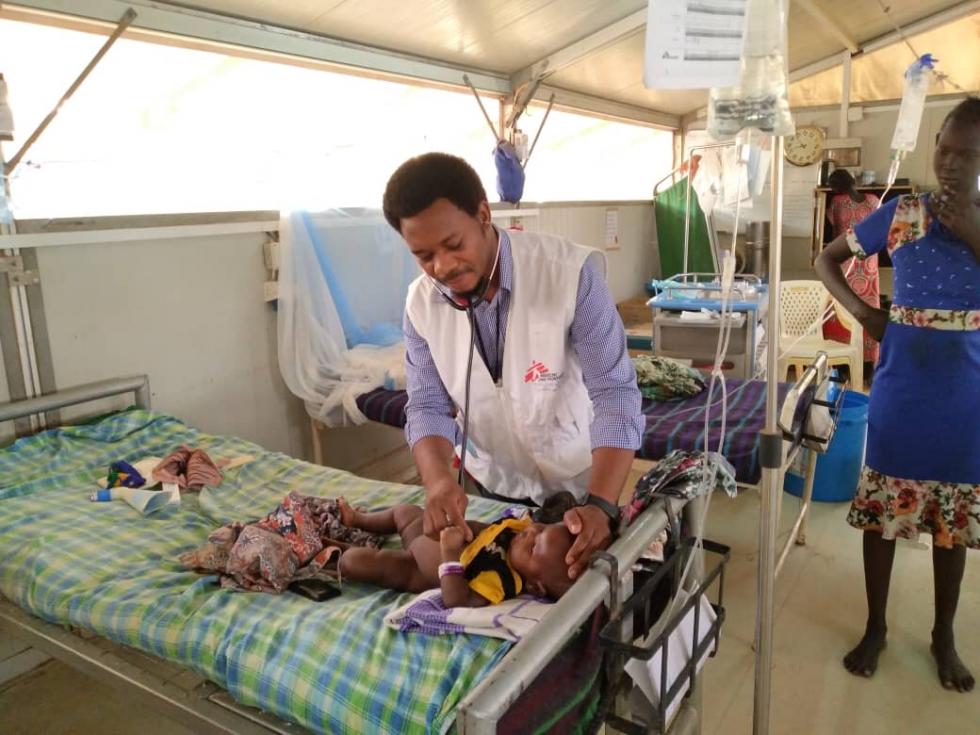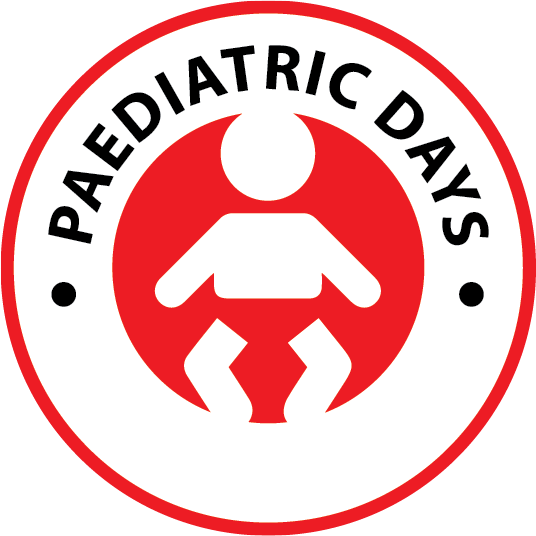WHEN PAEDIATRIC PATIENTS DON'T RESPOND TO ANTIBIOTICS: DEALING WITH ANTIBIOTIC RESISTANCE IN SOUTH SUDAN

Dr. Hilaire Pato Mukobelwa, who answers our questions, is an experienced paediatrician who has been working in the Democratic Republic of Congo, in Rwanda, in Cameroon, in Niger or in Afghanistan. Part of Médecins Sans Frontières medical staff since January 2017, Dr. Hilaire currently holds the position of Hospital Clinical Lead in Bentiu POC (South Sudan). Prior to the Paediatric Days event (April 15 and 16, 2021), he shares his first-hand testimony coping with ABR in humanitarian settings.
Can you briefly explain what ABR is?
Antibiotic Resistance (ABR) is the ability of microbes, especially bacteria, to survive to medicines used against them. Eg. In general Salmonella (a bacteria that caused typhoid fever) used to be sensitive to ciprofloxacin but since few years there is a significant increase of cases that not respond to this drug due to wildly or abuse use of this drug in some low-income countries.
What about Infection prevention and control (IPC) and the antibiotic stewardship program?
IPC is an approach and most practical solution designed to prevent harm caused by infection to patients and health workers. This is the place all public health measures in hospital are necessary: eg. Hand washing before touching each patient …
The antibiotic stewardship program is more focused on rational use of antibiotics.
The main concerns are that first, we have to see if the clinical reasoning to reach the diagnosis is correct. And second, we have to see if the prescribed drugs correspond to the diagnosis. The aim of these two approaches is to minimize side effects of antibiotics, minimize resistance, minimize toxicity, optimize clinical outcomes and the last goal is to reduce the costs.
As a paediatrician with experience in humanitarian settings, could you explain why is this a serious problem for MSF? And why particularly in paediatrics?
This topic is very important and at the same time challenging for all Health workers. The Antibiotic resistance is increasing at alarming rates in low-income countries especially for children and even new-borns. For example, during my mission in Afghanistan as a paediatrician, I have seen many children with severe sepsis including malnourished and new-borns who could not respond to usual antibiotics such as Ampicillin, Gentamycin, Ceftriaxone…The direct consequence was a very high mortality rate. The more we will rationally prescribe antibiotics to our patients, the better we will prevent resistances and save lives.
How is MSF approaching the challenges of ABR?
MSF works hard on:
- Infection prevention and control;
- Antibiotic stewardship;
- Diagnostic tools and surveillance.
How the different tools (SIPCA, Point prevalence survey) are being implemented in the Bentiu project?
Regarding the Stepwise IPC Approach (SIPCA), this involves WatSan (Water & Sanitation) and the logistic team during an assessment. The observation goes directly to dashboard [kobo collect] it is done twice a year where we check the level of IPC.
And on the Point Prevalence Survey (PPS), the first one was done in February 2019, the second in February 2020. The Global Point Prevalence Survey (GPPS) provides a tool for a one-day snapshot looking at the number of antimicrobials being used, whether there is documentation about their use and whether their use is compliant with locally approved or other endorsed guidelines.
Could you give real example of what happens in the field when microbiology is not possible?
It is very challenging to work on ABR while there is no microbiology. As mentioned above, clinical reasoning and rational use of antibiotics based on guidelines or some evidence-based medicine updates are the only possibilities to prevent resistance in the field when microbiology is not available. This is the reason to having AMR (antimicrobial resistance) Committee to evaluate regularly trough a PPS/SIPCA how things are going.
In practice we review all the medication and medical charts of all inpatients on antimicrobials on a day. The results will be communicated to the entire team and strategies are taken to improve in the future.
Is the COVID-19 health emergency affecting the implementation of stewardship activities?
Absolutely, we were planning a PPS in February 2021 unfortunately due the surge of Covid-19 it has been postponed. However, the Committee is in place. The better would be to have it at least twice a year.
The Paediatric Days team thanks Hilaire Pato Mukobelwa for his contribution to this article.
